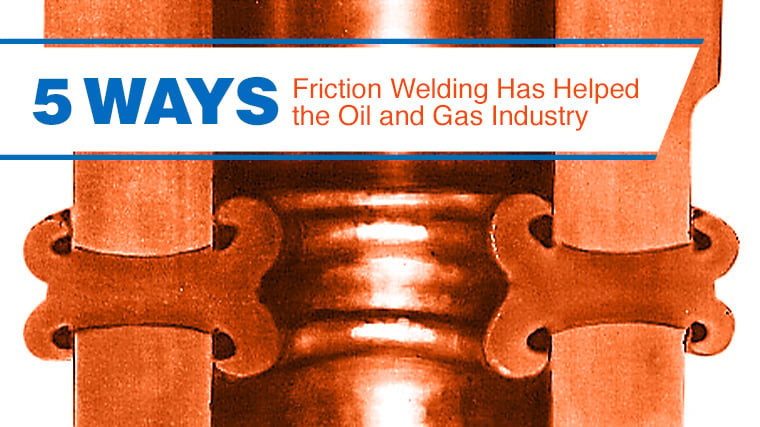
Friction welding offers a world of possibility for all types of industries, and MTI is a global leader in this highly adaptable technology. Our engineers are continually innovating and creating new solutions to difficult manufacturing challenges.
One place friction welding technology is making a difference, is in the oil and gas industry. With durable welds that can stand up to incredible stress, friction welding is a practical response to the demands that are put on drill pipes, manifold tubes, valves, perf-gun tubes, actuation balls, and more.
What is friction welding doing for oil and gas?
Here are just five of the most significant ways friction welding makes a difference for the oil and gas industry:
- Surfaces don’t have to be clean. In a traditional welding situation, materials that have rust or other residue on the surface may leave contaminants in the weld, weakening the bond. By using rotary friction welding for applications such as drill pipe, the parts that have rust or scale on the ends can be bonded without any prior joint preparation. This is crucial in the Oil and Gas sector. Time can be saved by not having to store pipes and other materials inside and away from weather conditions, since the surface does not have to be clean to join two parts.
- Superior weld strength. Friction welding is a solid state joining process. The high fatigue strength of friction welds makes them exceptional for use in underwater and corrosion resistant applications. With stress distributed at the surface adjacent to a potential failure site, this type of weld holds up to the rigorous demands of offshore oil rigs.
This same weld integrity also lends itself well to supporting drill pipe that’s made of 20-45 foot sections and may be several miles long. The friction welds support the lower drill stem assembly (made up of other drill pipes, drill collars, and the drilling bit) and transmit the rotary torque needed for drilling. Friction welding produces a metallurgical bond strong enough to take the high torque and highly loaded rotary tension caused by directional drilling.
- Adaptable technology. Rotary friction welding, the most common friction technology used in oil and gas, is available as an inertia or direct drive process, making it adaptive to your needs. Determining which process is better suited for your project depends on the application, material, and cycle time requirements.
- A more reliable process. Friction welding’s 100% solid state bond, combined with process advantages of being clean, fast, consistent, and free of operator induced error, make it ideally suited for the oil and gas industry. That’s why friction welding is highly sought-after for joining flanges to valve bodies, drill pipe, and more.
- Customized solutions. Because friction welding offers exceptional flexibility to join multiple materials, create large welds, and handle diverse part geometries, it can be used to solve diverse needs in a variety of contexts. For example, MTI was able to design and develop a specialized friction welding machine for Harbison-Fischer, to address a specific need. In this case, a key pump part was costing too much in terms of time and resources. MTI leveraged our friction welding technology to help them create the same part, but with higher quality and lower cost – thanks to fewer steps, and a 50% reduction in their Monel consumption for this particular process.
An optimized solution
MTI's newest form of solid-state joining, Low Force Friction Welding, also has the potential to bring additional benefits to the oil and gas industry. Along with the highlights listed above, Low Force Friction Welding can improve cycle times, create welds with little to no internal flash and can accommodate a wider range of parts.
What can friction welding do for you?Discover more about the many advantages friction welding has to offer in the oil and gas industry. MTI is committed to working with you to build you a part, build a machine to make your part, or help you make your part even better. We’ve been serving the oil and gas industry for years, and we’re equipped and prepared to help you. Contact us now to start the process.
 MTI UK
MTI UK  FWT
FWT